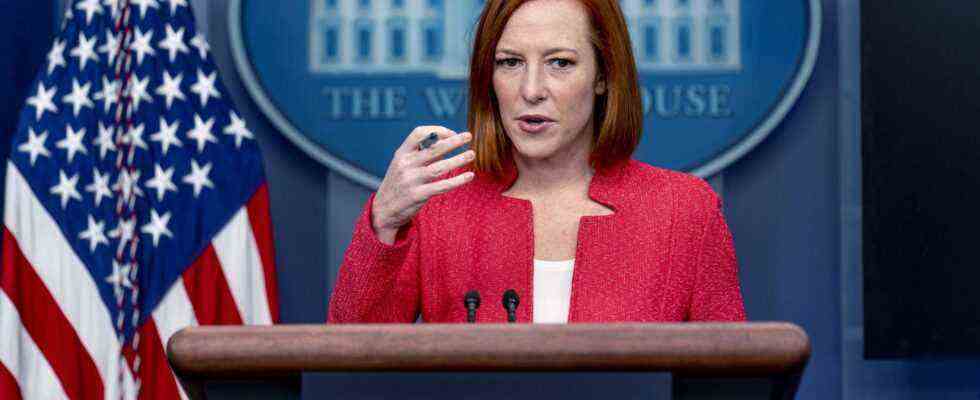Status: 01/14/2022 8:46 p.m
The tone between the US and Russia remains tense on the Ukraine crisis. Washington is now accusing the Kremlin of agents preparing acts of sabotage. Russia gave the West an ultimatum.
For days, top diplomats from Russia and the US discussed how and whether the Ukraine conflict could be resolved. Despite a marathon of negotiations, no agreement has been reached so far. Instead, both sides continue to strike sharp tones. The US government has accused Russia of creating a pretext for a possible invasion of Ukraine. The basis for the accusation is therefore the findings of the secret services.
“We have information that suggests Russia has already deployed a group of agents to conduct a false flag operation in eastern Ukraine,” White House spokeswoman Jen Psaki said. These agents are trained in “urban warfare” and in the handling of explosives in order to carry out acts of sabotage against Russian officials, for which Moscow then wants to hold Kiev responsible.
Targeted disinformation?
“We are concerned that the Russian government is preparing an invasion of Ukraine that could lead to widespread human rights abuses and war crimes if diplomacy fails to achieve its goals,” Psaki said. The White House gave no indication of how realistic it considers the intelligence services’ assessment to be.
In addition to the “false flag operation”, the basis for a disinformation campaign was also laid, in which Ukraine was presented as an aggressor planning an imminent attack in eastern Ukraine, Psaki explained. This should justify a Russian intervention and sow divisions in Ukraine.
Russian officials would spread narratives about the deteriorating human rights situation in Ukraine and the increasing militancy of Ukrainian leaders. “This is all the spread of misinformation,” Psaki said. This procedure is already known from 2014, when Russia annexed Crimea.
Lavrov: “We’re at the end of our patience”
Before Psaki went to the press, the allegations against Russia were leaked through unnamed government officials in Washington. Their reports met with outrage in Moscow. “All of these statements have so far been unfounded and have not been confirmed by anything,” Kremlin spokesman Dmitry Peskov told the state news agency TASS.
Russia’s Foreign Minister Sergey Lavrov demanded an early written answer to his demand for security guarantees. NATO troops and weapons close to Russia’s borders pose a security challenge to his country, which must be addressed immediately, he said. He expects an answer by next week. Otherwise, Russia will decide how to reliably ensure its security. “We are at the end of our patience,” Lavrov said.
He made it clear that arms control talks were secondary for his country. “You have to understand that the key to everything is the guarantee that NATO will not expand eastwards,” he said. Russia’s demands are a package and not a menu to choose from.
Massive troop deployment
According to Western estimates, Russia has massed around 100,000 soldiers, tanks and heavy weapons near the Ukrainian border. In view of the massive deployment of troops, the West fears that Russia is preparing to invade the neighboring country.
The Kremlin categorically denies this. President Vladimir Putin demanded guarantees that NATO would not accept Ukraine or other states that were formerly part of the Soviet Union. In addition, NATO is to withdraw military equipment not only from Ukraine, but also from Estonia, Latvia and Lithuania, which have been NATO members for 18 years. The West has already rejected these demands.
EU agrees ten-point plan
The tensions in the Ukraine conflict had therefore increased again. On Wednesday, the 30 NATO countries and Russia held consultations for the first time in two and a half years.
At a meeting in Brest, France, the EU foreign ministers agreed on a ten-point plan for dealing with Russia. The concept envisages relying on a mixture of deterrence and dialogue in view of the troop deployment.

